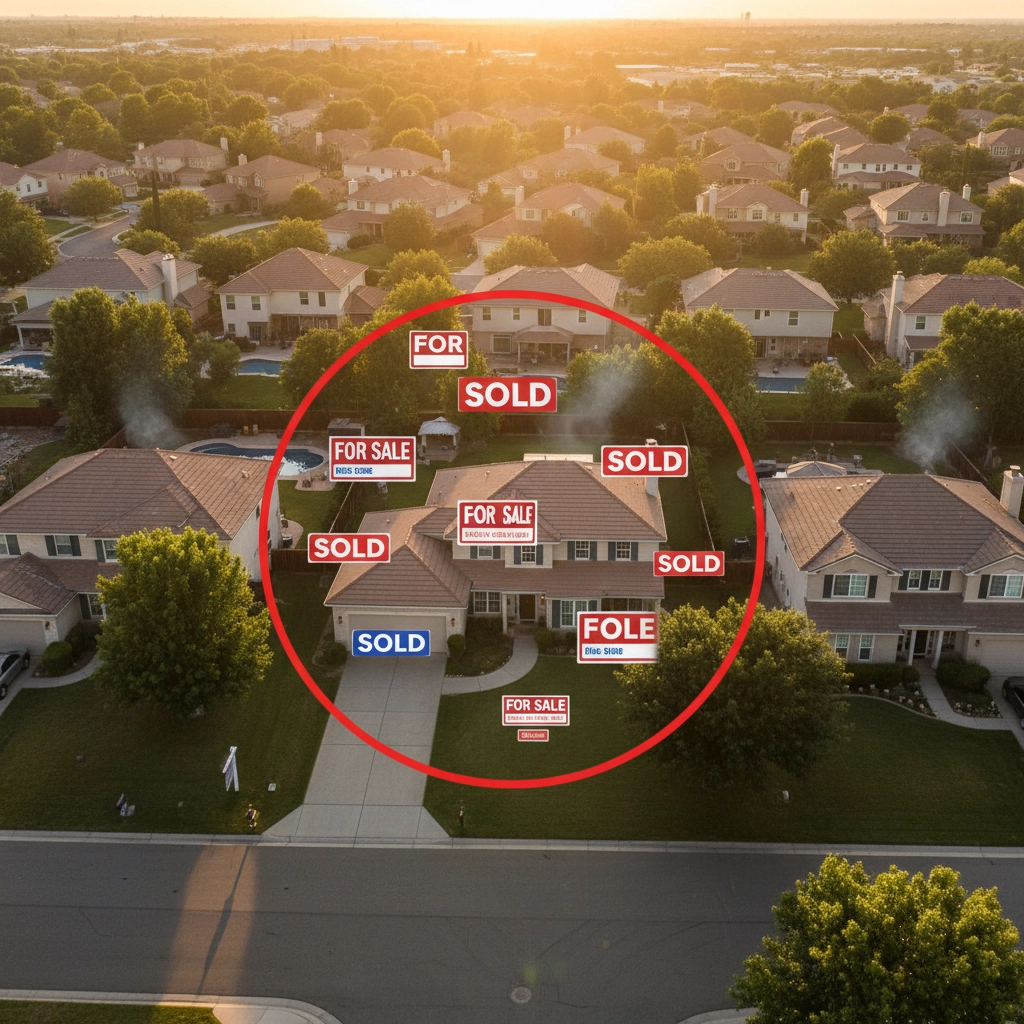Buying a home should be exciting, not anxiety-inducing. But with property fraud cases hitting over 9,300 victims in 2024 alone, it's no wonder many buyers are losing sleep over potential scams. The good news? Most property fraud can be spotted if you know what to look for.
Whether you're a first-time buyer or seasoned property investor, these five red flags could save you from devastating financial losses and emotional heartbreak. Let's dive into the warning signs that should have you hitting the brakes on any property deal.
Red Flag #1: Prices That Make You Do a Double-Take
We all love a bargain, but when a property is priced significantly below market value, your excitement should quickly turn to suspicion. While legitimate sellers occasionally price homes slightly below market for quick sales, dramatic discounts often spell trouble.

Properties listed tens of thousands below comparable homes typically hide serious issues like structural damage, pest infestations, or flooding problems. But here's where it gets particularly sneaky: scammers steal photos from legitimate property listings and repost them with attractive pricing to collect upfront "deposits" from unsuspecting buyers.
These fraudulent listings often target out-of-town buyers who can't easily visit the property in person. They'll create a sense of urgency, claiming multiple interested parties while pressuring you to secure the deal with an immediate wire transfer.
Your protection strategy: Research comparable properties in the area using tools like Rightmove or Zoopla. If something seems too good to be true, it probably is. Never send money without a professional inspection and proper legal documentation.
Red Flag #2: Sellers in a Suspicious Rush
Legitimate property transactions take time – there are surveys, searches, mortgage arrangements, and legal checks to complete. Be extremely wary of sellers who pressure you to move at breakneck speed or make dramatic claims about losing the opportunity.
Common pressure tactics include:
- Demanding immediate wire transfers for deposits
- Claiming other buyers are "waiting in the wings"
- Refusing to allow proper inspection periods
- Pushing for cash-only transactions

Fraudulent sellers often lack proper documentation too. They might dodge questions about permits, struggle to provide proof of ownership, or present documents that look hastily prepared or contain obvious errors.
Your protection strategy: Insist on reasonable timelines for due diligence. Earnest money deposits should always be held by reputable solicitors or estate agents, never sent directly to sellers. If someone's pushing you to skip standard procedures, that's your cue to walk away.
Red Flag #3: The Invisible Seller Syndrome
In today's digital world, some remote communication is normal. However, sellers who absolutely refuse face-to-face meetings or phone calls should raise immediate red flags.
Fraudulent sellers typically stick to email or text communication exclusively because it allows them to maintain false identities and avoid verification. They might claim to be overseas, travelling for work, or dealing with family emergencies that prevent in-person meetings.
Some sophisticated scammers even hire legitimate estate agents through email-only communication, meaning the agent has never actually met the supposed property owner either.

Your protection strategy: Insist on meeting the seller and viewing the property in person before any money changes hands. Verify estate agent credentials through official regulatory bodies. If you can't physically tour a property, don't even consider purchasing it.
Red Flag #4: Strange Listing Histories and Neighbourhood Claims
A property's listing history can tell you volumes about potential problems. Properties that appear, disappear, and reappear on the market often indicate that previous buyers discovered significant issues during inspections and walked away.
Pay particular attention to properties described as being in "up-and-coming" or "emerging" neighbourhoods. While some genuine opportunities exist in developing areas, this language is often used to mask properties in areas with ongoing problems like heavy construction, poor transport links, or safety concerns.
Your protection strategy: Ask your estate agent to investigate why a property was previously removed from the market. Visit the neighbourhood at different times of day and week to get a realistic picture of what living there would actually be like.
Red Flag #5: Financial Red Flags and Documentation Disasters
This is where property fraud often becomes most obvious to those paying attention. Watch out for:
- Wiring instructions directing funds to banks in different countries from where the seller claims to live
- Pre-signed documents arriving without any prior consultation
- Obvious spelling errors, mismatched signatures, or inconsistent information
- Seller addresses that don't match official land registry records

Fraudsters sometimes use complex financial arrangements involving third parties or shell companies to make it difficult to trace funds once they're sent. They might claim these arrangements are "standard practice" or necessary for "tax reasons."
Your protection strategy: Verify all financial instructions through multiple channels before sending any money. Cross-reference seller information with official records from HM Land Registry. When in doubt, consult with a qualified property law solicitor who can help verify legitimacy.
Beyond the Red Flags: Building Your Defence Strategy
Recognising red flags is just the first step. Here's how to build a comprehensive defence against property fraud:
Start with verified sources. Use reputable property websites and always confirm estate agent credentials through official regulatory bodies like The Property Ombudsman or ARLA Propertymark.
Never skip the inspection. A thorough survey by a qualified professional will identify structural issues, system problems, and maintenance concerns that could indicate fraud or future financial disasters.
Get proper legal support. Conveyancing isn't just paperwork – it's your legal protection. A qualified solicitor will conduct essential searches, verify ownership, and ensure all documentation is legitimate before you commit your money.
Trust your instincts. If something feels wrong, it probably is. High-pressure tactics, reluctance to provide documentation, or refusal to allow proper inspections are all valid reasons to walk away from any deal.
The Bottom Line
Property fraud is real, but it's not inevitable. By staying alert to these five red flags and following proper procedures, you can protect yourself while still finding your dream home.
Remember, legitimate sellers want qualified, serious buyers who can complete transactions properly. They're happy to provide documentation, allow inspections, and work within reasonable timelines. Anyone pressuring you to skip these standard protections isn't looking out for your interests.
When you're ready to move forward with a property purchase, don't go it alone. Professional legal support isn't an unnecessary expense – it's your insurance policy against fraud and costly mistakes. The peace of mind alone is worth every penny.
Sleep well knowing you've got the knowledge to spot the warning signs and the wisdom to get proper professional support when you need it most.




